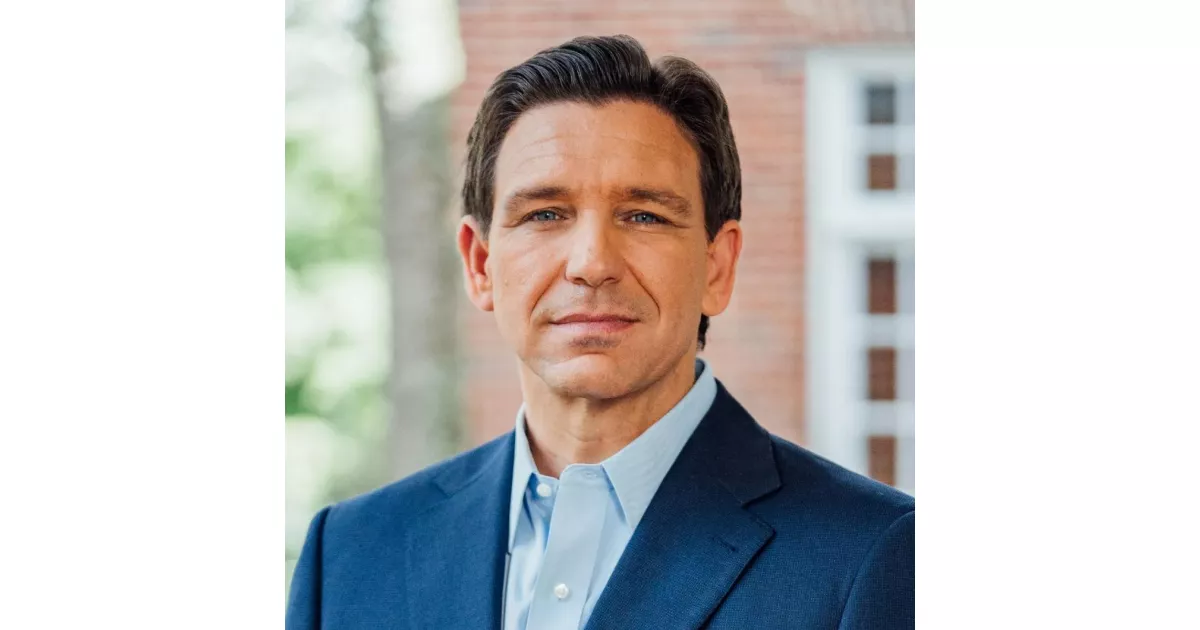Ron DeSantis is an American politician who has served as the 46th governor of Florida since 2019. A Republican, he previously represented Florida's 6th congressional district in the U.S. House of Representatives from 2013 to 2018. Before entering politics, DeSantis was an attorney and served as a naval officer. He sought the Republican presidential nomination in 2024, but withdrew from the race in January of that year.
1913: Youngest Governor Since 1913
On January 8, 2019, DeSantis became the youngest governor since Park Trammell took office in 1913.
1949: Groveland Four Conviction
In 1949, the Groveland Four, a group of black men, were falsely convicted of rape. DeSantis posthumously pardoned them on January 11, 2019.
September 14, 1978: Ron DeSantis Born
On September 14, 1978, Ronald Dion DeSantis was born. He is an American politician, attorney, and former naval officer.
1982: Largest Victory Margin Since 1982
Ron DeSantis's November 8 election victory was the largest margin of victory in a Florida gubernatorial election since 1982, with 59.4 percent of the vote.
1986: Won Palm Beach County
Ron DeSantis won Palm Beach County in the November 8 election, marking the first time a Republican had won the county since 1986.
1991: Little League World Series
In 1991, DeSantis was a member of the Dunedin National team that made it to the Little League World Series in Williamsport, Pennsylvania.
1997: Graduates Dunedin High School
In 1997, DeSantis graduated from Dunedin High School.
2001: Graduates from Yale
In 2001, DeSantis graduated from Yale University with a B.A., magna cum laude and he had the team's best batting average at .336 as captain of Yale's varsity baseball team.
2002: Won Miami-Dade County
Ron DeSantis won Miami-Dade County in the November 8 election, marking the first time a Republican had won the county since 2002.
2004: DeSantis Joins U.S. Navy
In 2004, after graduating from Yale University and Harvard Law School, DeSantis joined the U.S. Navy and was commissioned as an officer.
2004: Commissioned as Officer in U.S. Navy
In 2004, during his second year at Harvard Law, DeSantis was commissioned as an officer in the U.S. Navy and assigned to the Navy Judge Advocate General's Corps.
2005: Graduates Harvard Law School
In 2005, DeSantis graduated from Harvard Law School with a Juris Doctor, cum laude.
2006: Promoted to Lieutenant
In 2006, DeSantis was promoted from lieutenant, junior grade to lieutenant in the U.S. Navy.
2006: Stationed at Joint Task Force Guantanamo
In 2006, DeSantis was stationed at Joint Task Force Guantanamo.
2007: Legal Adviser to SEAL Team One
In 2007, DeSantis reported to the Naval Special Warfare Command Group in Coronado, California, where he was assigned as a legal adviser to SEAL Team One; he deployed to Iraq in the fall of 2007 as part of the troop surge.
April 2008: Reassigned to Naval Region Southeast Legal Service
In April 2008, DeSantis returned to the U.S. and was reassigned to the Naval Region Southeast Legal Service and also appointed to serve as a special assistant U.S. attorney at the U.S. Attorney's Office in the Middle District of Florida.
September 26, 2009: DeSantis married Casey Black
On September 26, 2009, DeSantis married Casey Black in a chapel at Disney's Grand Floridian Resort & Spa. The wedding ceremony was Catholic.
February 2010: Honorable Discharge from Active Duty
In February 2010, DeSantis received his honorable discharge from active duty. He also concurrently accepted a reserve commission as a lieutenant in the Judge Advocate General's Corps of the U.S. Navy Reserve.
2010: Honorable Discharge from Active Military Duty
In 2010, DeSantis received an honorable discharge from active military duty.
2012: Elected to the U.S. House of Representatives
In 2012, DeSantis was elected to the U.S. House of Representatives from Florida's 6th congressional district. He defeated six candidates in the Republican primary in August and then defeated Democratic nominee Heather Beaven in the November general election.
2012: First Elected to Congress
In 2012, DeSantis was first elected to Congress as the U.S. representative from Florida's 6th congressional district.
2012: Runs for Congress
In 2012, DeSantis worked as a litigator at the Miami-based law firm Holland & Knight before running for Congress.
2013: Signs "No Climate Tax Pledge"
In 2013, DeSantis signed a "No Climate Tax Pledge" against any tax hikes to fight global warming.
2014: Introduces Bill on Federal Agency Enforcement of Laws
In 2014, DeSantis introduced a bill that would have required the Justice Department to report to Congress whenever any federal agency refrained from enforcing laws.
2014: Introduces Let Seniors Work Act
In 2014, DeSantis introduced the Let Seniors Work Act, which would have repealed an incentive to retire instead of keep working and would have exempted those above 65 from the 12.4% Social Security payroll tax.
2014: Criticizes Venezuelan Government
In 2014, DeSantis supported the Venezuelan protests, calling them peaceful and a result of Venezuela's "socialist" economic policy. He heavily criticized the Venezuelan government's response to the protests. He also asked for IRS commissioner John Koskinen's resignation.
2014: Re-elected to Congress
In 2014, DeSantis was re-elected to Congress.
2014: Re-elected to the U.S. House of Representatives
In 2014, DeSantis was re-elected to the U.S. House of Representatives.
May 2015: Announces Candidacy for U.S. Senate
In May 2015, DeSantis announced his candidacy for the 2016 United States Senate election in Florida.
2015: Named Taxpayer Superhero
In 2015, Conservative think tank Citizens Against Government Waste named DeSantis a "Taxpayer Superhero". DeSantis sponsored the Transportation Empowerment Act, which would have transferred much of the responsibility for transportation projects to the states and sharply reduced the federal gas tax.
2015: Co-sponsors Kate's Law
In 2015, DeSantis co-sponsored Kate's Law, which would have increased penalties for aliens who unlawfully reenter the U.S. after being removed.
2015: Founding Member of Freedom Caucus
In 2015, DeSantis was a founding member of the Freedom Caucus, a group of congressional conservatives and libertarians.
2015: Sister's Death
In 2015, DeSantis's younger sister, Christina, died at age 30 from a pulmonary embolism.
2016: Introduces Higher Education Reform and Opportunity Act
In 2016, DeSantis introduced the Higher Education Reform and Opportunity Act, which would have allowed states to create their own accreditation systems and give students access to federal loan money for non-traditional educational opportunities.
2016: Rating from the Human Rights Campaign
In 2016, DeSantis received a "0" rating from the Human Rights Campaign on LGBT-related legislation.
2016: Re-elected to Congress and U.S. Senate Candidacy
In 2016, DeSantis was re-elected to Congress. He also briefly ran for U.S. Senate but withdrew when incumbent Senator Marco Rubio sought reelection.
2016: Re-elected to the U.S. House of Representatives
In 2016, DeSantis was re-elected to the U.S. House of Representatives.
2016: Withdraws from Senate Race
In 2016, DeSantis withdrew from the Senate race after Marco Rubio decided to run for reelection. Instead, DeSantis ran for reelection to the House.
May 17, 2017: Comments on Mueller Investigation
On May 17, 2017, DeSantis commented that the order that initiated the probe "didn't identify a crime to be investigated" and was likely to start a fishing expedition.
June 2017: Congressional Baseball Shooting
In June 2017, DeSantis was present before the congressional baseball shooting, and the perpetrator asked him whether the players were Republicans.
2017: Votes for Trump Tax Cuts
In 2017, DeSantis voted for the Trump tax cuts.
January 5, 2018: Filed to Run for Governor
On January 5, 2018, Ron DeSantis filed to run for the office of governor, aiming to replace Rick Scott. President Trump had previously expressed his support for DeSantis's potential candidacy.
August 28, 2018: Won Republican Primary
On August 28, 2018, Ron DeSantis won the Republican primary, defeating Adam Putnam. During the primary, DeSantis emphasized his alignment with President Trump.
November 2018: Supported Voting Rights Restoration Initiative
In November 2018, DeSantis expressed support for the Voting Rights Restoration for Felons Initiative after it passed, stating he was obligated to implement it.
2018: Pledged to Lower Corporate Income Taxes
During his 2018 gubernatorial campaign, DeSantis pledged to lower corporate income taxes to 5 percent or lower.
2018: Retires from House to run for governor
In 2018, DeSantis retired from the House of Representatives to run for governor of Florida.
2018: Wins Republican nomination and defeats Andrew Gillum
In 2018, DeSantis won the Republican nomination in the gubernatorial election and defeated Tallahassee mayor and Democratic nominee Andrew Gillum by 0.4%.
January 8, 2019: Became Governor of Florida
On January 8, 2019, Ron DeSantis became the Governor of Florida. At age 40, he was the youngest person to assume the office since 1913 and the youngest Republican ever to hold the position.
January 11, 2019: Pardoned Groveland Four and Suspended Sheriff Israel
On January 11, 2019, DeSantis posthumously pardoned the Groveland Four and suspended Broward County sheriff Scott Israel, appointing Gregory Tony as his replacement.
February 2019: End of Navy Reserve Service
In February 2019, DeSantis's Navy Reserve service ended, a month after his gubernatorial inauguration, with the rank of lieutenant commander.
April 2019: Directed Expansion of Spanish-Language Ballots
In April 2019, DeSantis directed Florida's elections chief to expand the availability of Spanish-language ballots and Spanish assistance for voters.
June 2019: Signed $91.1 Billion Budget
In June 2019, DeSantis signed a $91.1 billion budget passed by the legislature, which was the largest in state history at the time. He also cut $131 million in appropriations.
June 2019: Signed Measure Making Ballot Initiatives Harder
In June 2019, DeSantis signed a measure that would make it harder to launch successful ballot initiatives.
June 2019: DeSantis signed anti-"sanctuary city" bill into law
In June 2019, DeSantis signed an anti-"sanctuary city" bill into law. Florida had no sanctuary cities before the law's enactment, and immigration advocates called the bill politically motivated.
June 2020: DeSantis signed bill requiring E-Verify
In June 2020, DeSantis signed a bill requiring government employers and contractors to use E-Verify. He had originally called for all employers to be required to use it.
December 2020: Extended Unemployment Waivers
In December 2020, DeSantis ordered the Florida Department of Economic Opportunity to extend unemployment waivers until February 27, 2021.
2020: Investigated Bloomberg's Voter Initiative
In 2020, DeSantis instructed Florida Attorney General Ashley Moody to investigate whether Michael Bloomberg had criminally offered incentives for felons to vote in the 2020 presidential election in Florida. No wrongdoing was found.
2020: Democrats Outvoted Republicans by Mail
In 2020, Democrats outvoted Republicans by mail, which was notable given that Republicans had historically voted by mail more than Democrats.
February 2, 2021: DeSantis announced support for legislation to hold tech companies accountable
On February 2, 2021, DeSantis announced his support for legislation aimed at holding tech companies accountable to prevent alleged political censorship. This action was a response to social media networks removing Trump from their platforms. The proposed legislation sought to prohibit tech companies from de-platforming political candidates in Florida.
February 2021: Supported Eliminating Ballot Drop Boxes
In February 2021, DeSantis announced his support for eliminating ballot drop boxes and limiting voting by mail by requiring voters to re-register every year to vote by mail.
February 27, 2021: Unemployment Waivers Extended
On December 2020, DeSantis extended unemployment waivers until February 27, 2021, through the Florida Department of Economic Opportunity.
April 2021: DeSantis signed Combating Public Disorder Act into law
In April 2021, DeSantis signed into law the Combating Public Disorder Act he had been advocating. The anti-riot statute forbade intimidation by mobs; penalized damage to historic properties or memorials; and forbade publishing personal identifying information online with intent to harm.
May 5, 2021: DeSantis announced bonus for first responders
On May 5, 2021, DeSantis announced that all Florida police officers, firefighters, and paramedics would receive a $1,000 bonus.
June 1, 2021: DeSantis signed Fairness in Women's Sports Act
On June 1, 2021, DeSantis signed the Fairness in Women's Sports Act (SB 1028) into law. The act bans transgender girls and women from participating and competing in middle-school, high-school girls', and college women's sports competitions.
June 2021: Signed $101.5 Billion Budget
In June 2021, DeSantis signed a $101.5 billion budget, using his line-item veto to veto $1.5 billion. This budget was more than $9 billion higher than Florida's current state spending plan.
June 2021: Banned Teaching of Critical Race Theory
In June 2021, DeSantis spearheaded an effort to ban the teaching of critical race theory in Florida public schools, which was approved by the Florida Board of Education on June 10.
September 14, 2021: Announced Replacement of FSA Test
On September 14, 2021, DeSantis announced that Florida would replace the Florida Standards Assessment (FSA) test with a system of three smaller tests.
September 2021: DeSantis introduced signing bonus for police officers
In September 2021, DeSantis introduced a $5,000 signing bonus for Florida police officers in a bid to attract out-of-state police recruits, as part of his initiatives to "fund the police."
September 2021: Announced Reelection Campaign
In September 2021, Ron DeSantis announced his campaign for reelection as Governor of Florida. He later filed the necessary paperwork in November to officially enter the race.
November 22, 2021: Announced Temporary Gasoline Tax Waiver
On November 22, 2021, DeSantis announced that he would temporarily waive Florida's gasoline tax in the next legislative session due to a significant increase in gasoline prices.
December 2, 2021: DeSantis announced reactivation of Florida State Guard
On December 2, 2021, DeSantis announced a $100 million funding proposal for the Florida National Guard, which included $3.5 million allocated to reactivate the Florida State Guard, a volunteer state defense force that had been inactive since 1947.
December 15, 2021: Announced Stop WOKE Act
On December 15, 2021, DeSantis announced the Stop Wrongs to Our Kids and Employees Act ("Stop WOKE Act"), which would allow parents to sue school districts that teach critical race theory.
2021: Legislature Passed DeSantis's Priorities
During the 2021 session, the Republican-dominated Florida legislature passed DeSantis's top legislative priorities, exerting pressure on Republican legislative leaders.
2021: Net Worth
In 2021, DeSantis' net worth was $300,000.
April 14, 2022: Signed 15-Week Abortion Ban
On April 14, 2022, DeSantis signed into law a bill that bans abortions after 15 weeks of pregnancy, including exceptions to avert "serious risk" to the pregnant woman's physical health or if there is a "fatal fetal abnormality".
May 2022: Florida's Unemployment Rate Remained Low
Since May 2022, Florida's unemployment rate has remained around two percent, below the national average.
July 1, 2022: 15-Week Abortion Ban Enforcement Blocked
On July 1, 2022, a state judge blocked the enforcement of the 15-week abortion ban, ruling that it violated the right to privacy guaranteed by the Florida Constitution.
August 18, 2022: Federal Judge Blocked Enforcement of Stop WOKE Act
On August 18, 2022, a federal judge blocked enforcement of the Stop WOKE Act as applied to businesses, citing violations of the First Amendment.
September 2022: DeSantis declared state of emergency for Hurricane Ian
In September 2022, DeSantis declared a state of emergency for all of Florida as Hurricane Ian approached and asked for federal aid ahead of time.
2022: Corporate Income Taxes Increased
By 2022, corporate income taxes in Florida had increased to 5.5 percent, after having been as low as 3.5 percent in 2021.
2022: Criticism of Charlie Crist's Attendance
During the campaign trail, DeSantis criticized Crist's role as a U.S. representative, stating at the debate that Crist only showed up for work for 14 days during 2022.
2022: Time 100 and HarperCollins Book Deal
In 2022, DeSantis appeared on Time 100, Time's list of influential people. Also in 2022, he secured a $1.25 million book deal with HarperCollins, making him a millionaire by the end of the year.
2022: Gasoline Tax Waiver in Legislative Session
In 2022, DeSantis planned to implement a temporary waiver of Florida's gasoline tax, as announced on November 22, 2021, during the legislative session.
2022: Controversial "Monkey This Up" Comment
In 2022, Dexter Filkins, writing in The New Yorker, described DeSantis's comment following his primary win as a "disastrous gaffe." The comment was interpreted by some as a racist dog whistle.
2022: Allegations Regarding Guantanamo Bay Detention Camp
In 2022, Mansur Ahmad Saad al-Dayfi, a former detainee, alleged that DeSantis oversaw force-feeding detainees at Guantanamo Bay. DeSantis acknowledged advising the base commander on the use of force-feeding.
2022: Defeats Charlie Crist by 19.4 percentage points
In the 2022 gubernatorial election, DeSantis defeated former governor Charlie Crist by 19.4 percentage points, the state's largest margin of victory for a governor's election in 40 years.
2022: New Testing System Implemented
The new testing system, announced on September 14, 2021, to replace the Florida Standards Assessment (FSA) test, was implemented in the 2022–23 school year.
January 2023: Supreme Court to Hear Challenge to Abortion Ban
In January 2023, the Supreme Court of Florida agreed to hear a legal challenge to the state's 15-week abortion ban.
April 2023: Signed Six-Week Abortion Ban
In April 2023, DeSantis signed a six-week abortion ban into law with exceptions for rape, incest, or human trafficking with proof of a crime. The bill will make providing an abortion a felony punishable by up to five years in prison.
April 26, 2023: Disney filed suit against DeSantis
On April 26, 2023, The Walt Disney Company filed a lawsuit against DeSantis and several others, accusing them of retaliating against protected speech.
May 24, 2023: Announces Candidacy for President
On May 24, 2023, DeSantis announced his candidacy for the Republican nomination for president of the United States.
September 2023: Net Worth Estimated
In September 2023, DeSantis' net worth was estimated to be $1.5 million.
2023: Reestablished the Florida Department of Commerce
In 2023, DeSantis reestablished the Florida Department of Commerce, consolidating Visit Florida, Enterprise Florida and the Florida Department of Economic Opportunity.
2023: Reversed Position on Social Security
While running for president in 2023, DeSantis reversed his previous position on Social Security, stating, "we’re not going to mess with Social Security."
January 2024: DeSantis withdraws from presidential race
In January 2024, Ron DeSantis withdrew from the 2024 Republican presidential nomination race.
January 21, 2024: Withdraws Presidential Candidacy
On January 21, 2024, DeSantis withdrew his presidential candidacy and endorsed Trump.
January 31, 2024: Lawsuit dismissed, Disney vows to appeal
On January 31, 2024, Disney's lawsuit against DeSantis was dismissed, with Disney vowing to appeal the decision.
March 27, 2024: Disney settled state court lawsuits with DeSantis
On March 27, 2024, Disney settled its pending state court lawsuits with DeSantis. Per the agreement, Disney put the appeal of its federal lawsuit on hold while a new development agreement with Florida was negotiated. But no alterations to Disney's appeal of the federal lawsuit were made. The settlement came a day after DeSantis replaced two Disney critics on the Central Florida Tourism Oversight District with two Disney supporters and two weeks after a court largely overturned The Parental Rights in Education Act.
April 1, 2024: Supreme Court Upheld 15-Week Ban
On April 1, 2024, the Supreme Court of Florida upheld the 15-week abortion ban, paving the way for the six-week ban signed in April 2023 to go into effect.
May 1, 2024: Six-Week Abortion Ban Went into Effect
On May 1, 2024, the six-week abortion ban, signed in April 2023, went into effect after the Supreme Court of Florida upheld the 15-week ban on April 1, 2024.
June 2024: DeSantis vetoed waterways monitoring bill
In June 2024, DeSantis vetoed a bill passed by the State House that would have created a statewide process managed by the Department of Health to issue closures and send warnings if the bacteria in waterways reached unsafe levels.
September 2024: DeSantis defended election police unit's visits to voters
At a press event in September 2024, DeSantis defended the visits by the election police unit to the homes of Florida voters who had signed an abortion rights ballot initiative.
2024: Presidential Campaign Speculation
During the gubernatorial debate held on October 23, Crist questioned DeSantis about serving a full four-year term, alluding to speculation about a potential DeSantis campaign for president in 2024.
2024: Supporters Chant "Two More Years"
Following DeSantis's win in the November 8 election, supporters chanted "two more years" at his victory rally to signal support for a potential presidential run in 2024.
May 20, 2025: State Attorney opened criminal investigation into allegations of money laundering and wire fraud.
On May 20, 2025, State Attorney Jack Campbell opened a criminal investigation into the allegations of money laundering and wire fraud regarding DeSantis's former chief of staff.
2026: Ineligible to run for third term
In 2026, DeSantis is not eligible to run for a third term as governor of Florida.
Mentioned in this timeline

Donald John Trump is an American politician media personality and...

Marco Rubio is an American politician attorney and diplomat He...

Michael Bloomberg is an American entrepreneur politician and philanthropist He...
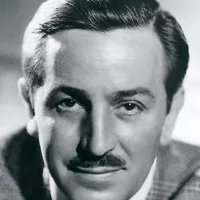
Walter Elias Disney was a highly influential American animator film...
The Affordable Care Act ACA also known as Obamacare is...
Puerto Rico is a self-governing Caribbean archipelago and island that...
Trending
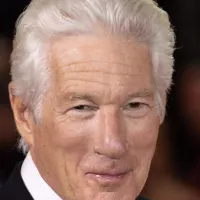
2 months ago Richard Gere and Wife Alejandra Silva Make Rare Red Carpet Appearance in Madrid.

2 months ago Netanyahu Seeks Presidential Pardon Amid Corruption Trial: A Political Maneuver?

2 months ago Olivia Munn Suffered Food Poisoning After Eating Sushi in Bathtub, Vomited at Airport
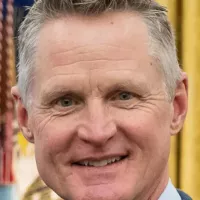
10 months ago Steve Kerr Addresses Jonathan Kuminga's Fit Within the Warriors After OT Loss.
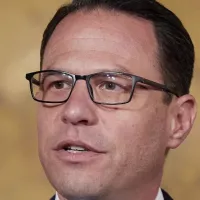
7 months ago Josh Shapiro Addresses Stadium Funding, Reaffirming No State Money for New Arenas.
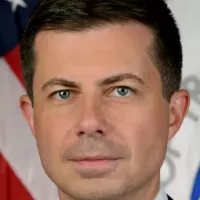
6 months ago Buttigieg Warns Democrats: No Return to Status Quo Post-Trump Presidency in 2028.
Popular

Thomas Douglas Homan is an American law enforcement officer who...

XXXTentacion born Jahseh Dwayne Ricardo Onfroy was a controversial yet...

William Franklin Graham III commonly known as Franklin Graham is...

Jupiter is the fifth and largest planet from the Sun...

Instagram is a photo and video-sharing social networking service owned...

Martin Luther King Jr was a pivotal leader in the...
